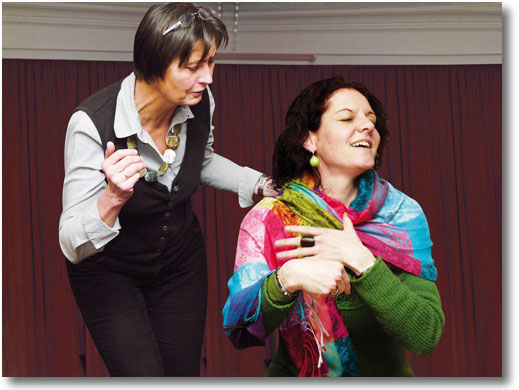Which Roles I am playing?
Learn to play your everyday "roles" more effectively and have more fun playing them!

If you want to be dynamic and convincing- in your worklife as well as among friends it is extremely useful to broaden your role-playing repertoire.
What does the word„Role“ mean?
There are many different meanings. In the context of this workshop it means the form in which we interact t with others. A role is influenced by our thoughts attitudes and feelings, and expresses itself through:
- Our verbal language, body language and how we use our voice.
- Role-play differs from acting in that we are not trying to become a different character. Rather we are expressing different perspectives, different „versions“ of our own character.
COURSE CONTENT
- Elements of Role-play- Body, Voice, Language
- Role-play from „within“
- The Status-Role
What is meant by a „Status-Role?“
How does status behaviour express itself?
Understanding the dynamic of status-games
- Voluntary (conscious) and involuntary (unconscious) role-play in everyday interactions; Alter-casting
- Strengthening our positive roles and discovering hidden roles
- How to use role-play as a leader, in building a team (e.g. in sales); and in presentations
WHAT YOU WILL GAIN FROM THIS COURSE
In this workshop you will extend your theoretical and practical knowledge in the following:
- The impressions you make on other people
- The impressions others make on you and how they sometimes manupulate you into roles you don’t want to play. How to avoid this!
You will also learn:
- How your language, your body language and your voice contribute to effective communication
- How you can strengthen the positive roles you play, get to know those more deeply, and broaden your role-playing repertoire
- How your „performances“ can become livelier and more convincing.
THE METHOD
The workshop uses methods which stretch beyond their original application in theatre-Body and role-play exercises, as well as improvisational theatre.
Each theoretical input is supported by exercises which illustrate and deepen the topic.
There is also time for reflection, exchange of ideas and working through concrete examples.